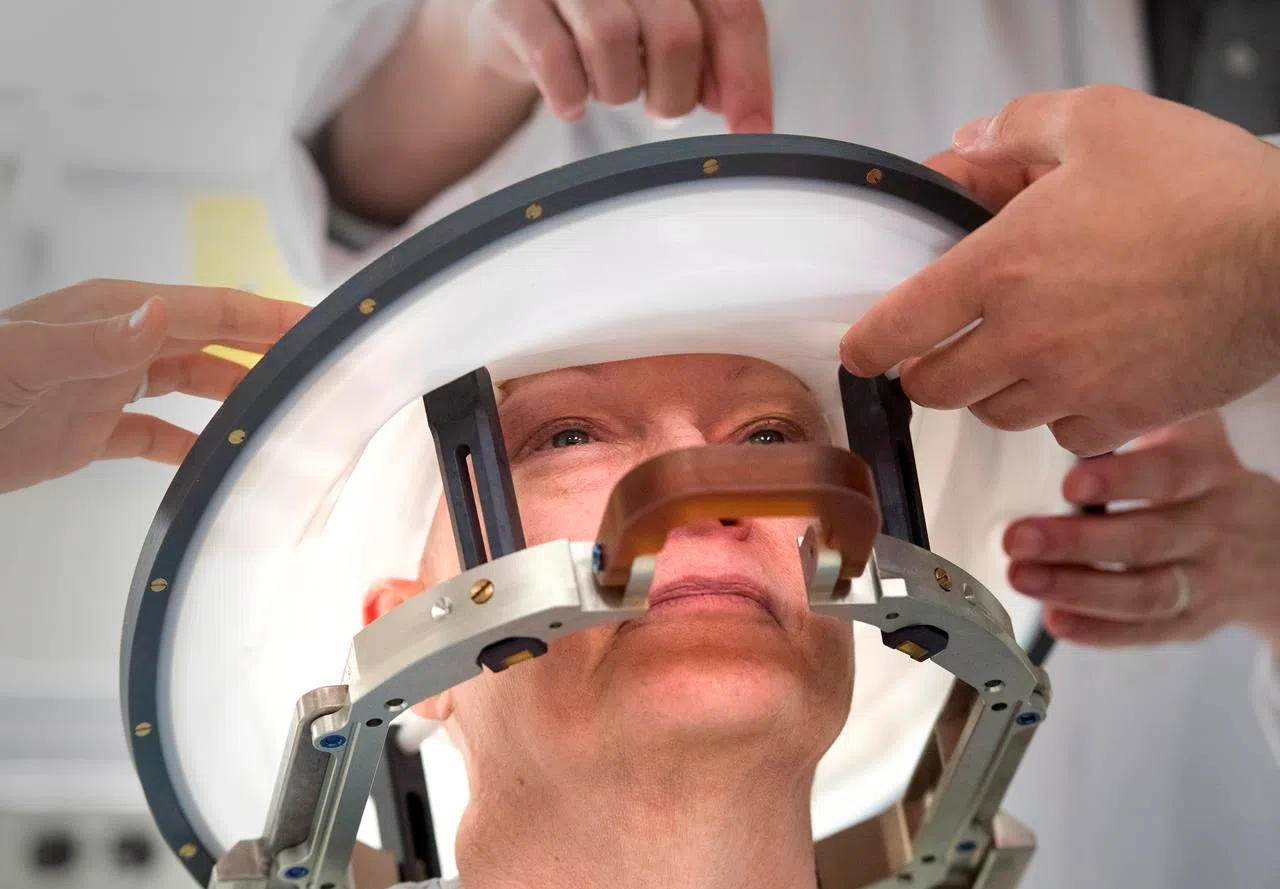
Focused ultrasound could revolutionize treatment of brain diseases: researchers
TORONTO — Karen Hellerman sits patiently in her hospital gown as Dr. Nir Lipsman gently shaves her head. The neurosurgeon then injects freezing into her newly shorn scalp before fitting her head with a circular frame, snugging the helmet-like device with screws so it can’t shift during the upcoming procedure.
The former elementary school teacher and principal from Chatham, Ont., has early-onset Alzheimer’s and she has volunteered to take part in a bold new experimental procedure at Sunnybrook Health Sciences Centre in Toronto — one which doctors there hope may some day revolutionize the treatment of dementia and other debilitating neurological disorders.
Hellerman is then taken into the MRI suite, where for the next few hours she lies sedated in the huge, noisy scanner as her brain is imaged and low-intensity ultrasound waves are passed through her skull, targeting the right frontal lobe of her brain.
The goal is to poke microscopic holes in the blood-brain barrier, a fine membrane that keeps “bad things out of the brain,” including disease-causing microbes, Lipsman explains.


